Robb Report Singapore’s raving reporter Andrew Leci gets lost – and loses – in a game that could change the fate of the human race (Well, not really, but it’s a great line nonetheless)
Not many of us will be old enough to remember Cliff ‘Permatan’ Richard’s 1979 hit entitled, We Don’t Talk Anymore. Those who are might like to reflect on how prophetic the title, and indeed many of the lyrics, have come to be.
While the evergreen (and various hues of brown) megastar was singing about the breakup of a relationship, the words themselves have never been truer than they are today, 40 years later.
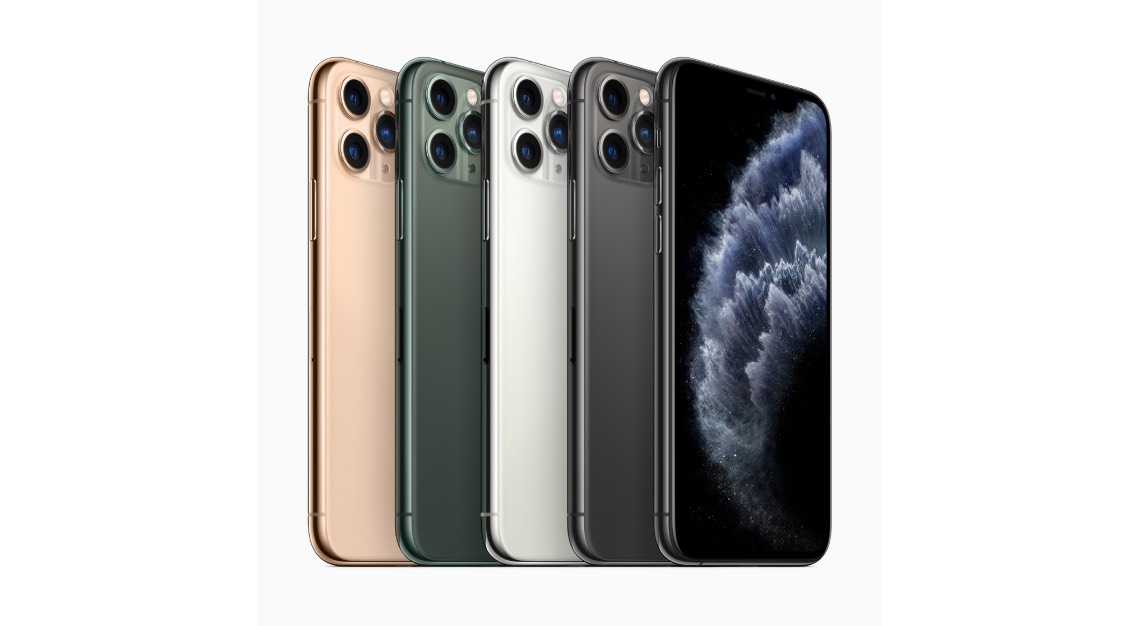
While most of us send out tens, if not hundreds of emails a day, and communicate via texts for more waking hours than can possibly be healthy, actual inter-human-being conversations seem to be at an all-time low. My theory, and this may not come as much of a revelation, is not that we like each other less, necessarily, but that we have grown to like the ‘black mirrors’ in our pockets more.
According to digitaltrends.com, mankind purchased 1.4 billion smartphones in 2018 alone. Statistics relating to mobile phone addiction recently published on techjury.net suggest that the average person spends two hours and 51 minutes goggling at (not Googling) our phones per day, and an average of 45 minutes per day spending ‘quality time’ – whatever the hell that means – with our families.
I’ve already written quite a bit about ‘nomophobia’ – the ‘fear of being without your mobile phone’ (I’ve taken out the word ‘irrational’ since all phobias are irrational, apparently) which is fast on its way to becoming a recognised clinical condition. Big pharma must be chomping at the bit and licking its lips (if it’s even possible to do both at the same time without making a mess) at the prospect of coming up with a drug to mitigate the antisocial surge. They’ll be hoping to make it profitable enough, no doubt, to counteract the effects of the innumerable lawsuits that will have to be fought over their Pez-dispenser-philosophy on opioid marketing and distribution.
But I digress. We love our phones, and they’re part of our lives. We communicate more than we used to but not face to face, and not in a way that feeds our souls, results in laughter, and makes us feel better about being members of the human race. There is, however, hope on the horizon, and it comes in an unlikely form. A game. No more, no less.

Board games have been part of how we homo sapiens play for millennia. Dice and gaming pieces have been found in burial sites dating back 5,000 years. Chess – the greatest board game ever invented, and I will brook no argument – is at least 1,500 years old (probably more), while Backgammon is said to predate chess to the tune of 3,500 years. And let’s not forget Go… two and a half millennia at least, and still ‘Go’ing strong. Apologies.
Mankind has always played games – Scrabble, Monopoly, Risk, Cluedo, Trivial Pursuit, even Jenga… anyone? Sure, they’re competitive – winners and losers are required – but they’re also convivial and dependent on human interaction, unless you’re playing in a world championship, which most of us won’t be.
And now there’s a new kid on the block that has most, if not all the appeal of the abovementioned pastimes along with the potential for the kind of actual conversation and human interaction that we all need… and miss. Perhaps I should mention that technology is also involved, and a smartphone is part of the paraphernalia. Do I have your attention now?
Muzo seems to have caught the ‘look, we can actually talk to each other while having fun’ wave as we seek a bit of companionship and camaraderie in our downtime. First-time game designer Jim Ribbans had an idea for a game, after subjecting some friends to his eclectic musical tastes. He felt that although it could have worked as an app, it would be so much more fun as a game to be played with… wait for it… actual people. In the same room. Preferably with a glass of something tasty and mildly intoxicating in front of them.
“We did think about doing this as an app,” said Ribbans, having roped in a friend or two, “but we wanted to ‘get physical’.” He is deliberately quoting a line from an Olivia Newton-John song released in 1981, although he’d be far too young to remember it. “I wanted to play the game with other people, because I love music, and I want the people I love to love music too. Preferably mine, but you never know with Muzo, and that’s part of the fun. It also presents the challenge that made me think we could turn it into a competitive game. There’s more to it,” he quipped, “than meets the ear.”
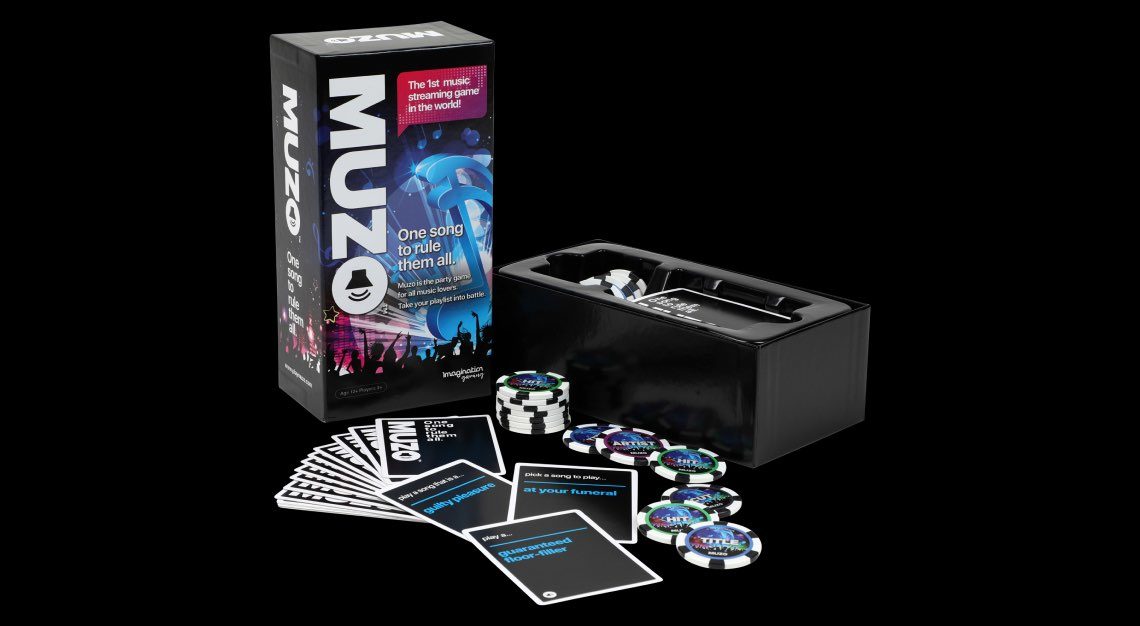
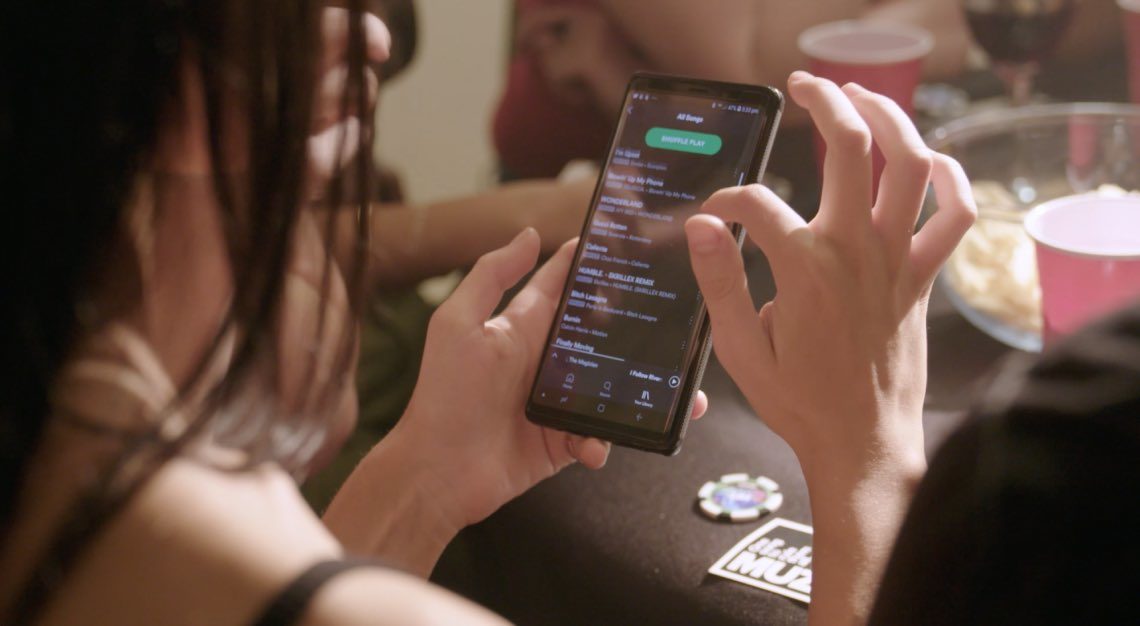
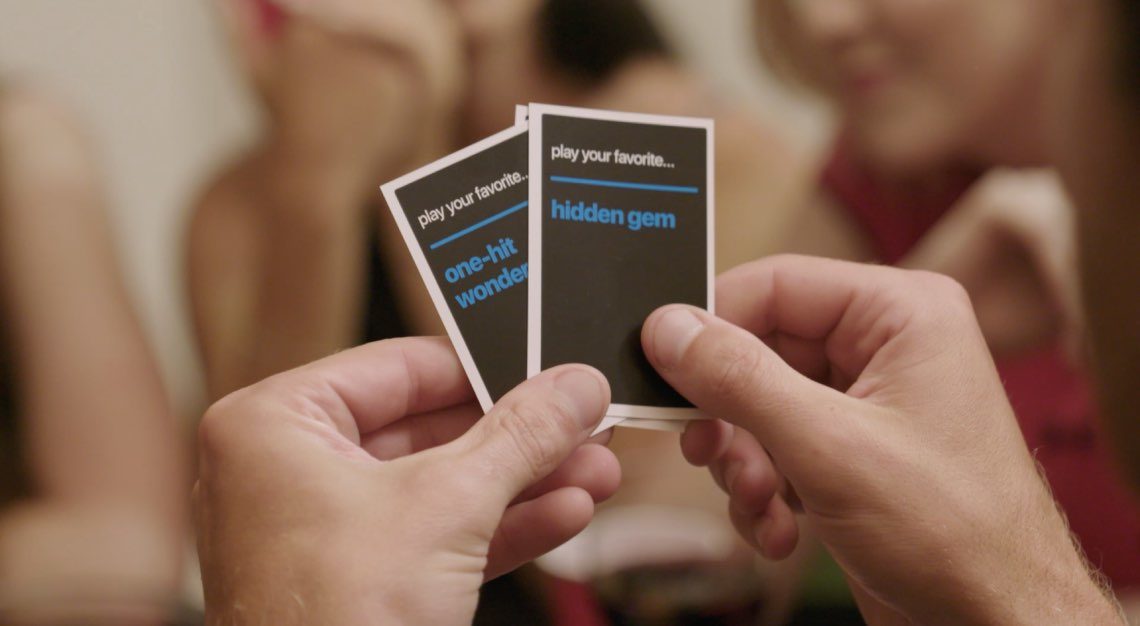
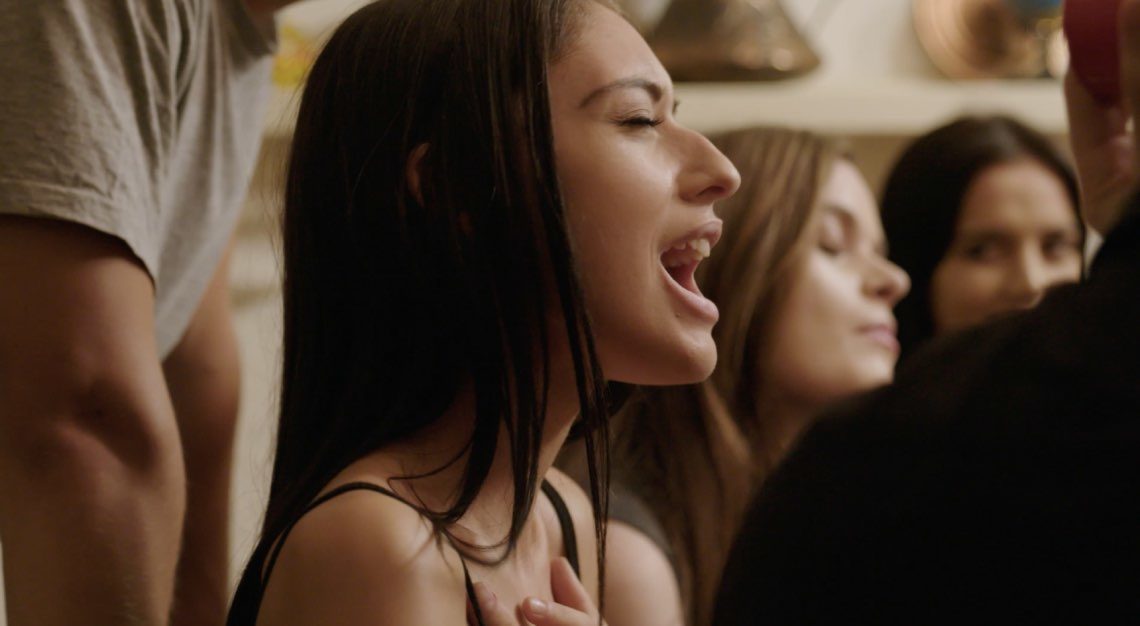
Muzo is very easy to play, and equally difficult to win. All you need is the equipment (a small box containing 72 category cards, 18 poker-style chips with true Las Vegas heft, and Spotify – or similar audio streaming platform. Spotify fans will claim that there isn’t one to compare, but this is not an advertorial) and people. You get a card, you pick a song, and you play it to everyone. Then you wait to determine whether they like it or not, and you’ll know soon enough as they throw in a ‘hit’ or ‘cut’ chip after trying to guess the artist and the title. The latter exercise is optional.
Categories vary from the somewhat prosaic, ‘the 1990s’, ‘The Beatles’, and ‘love song’ to the emotive and evocative ‘first pop song you remember’, song to play ‘at your funeral’, and my personal favourite (for which I scored no points and was pilloried) song to ‘sing in the shower’.
All these present opportunities for you to play the music you love to people that you like and hope that they approve. If they don’t, you lose. This is where the strategy – not as sophisticated as Chess perhaps, but just as intuitive in terms of ‘reading the room’ – comes in.
“We always felt that a big part of playing our game, or indeed any game, is the reaction you get in the moment,” said Ribbans. “It’s quite hard to high five someone on the internet or give them a bit of a ‘chirp’ if they lose.” Ribbans is British, so a ‘chirp’ could be anything from a mild rebuke to an all-out verbal assault questioning IQ levels and even parentage.
“It’s a game that is hugely reliant on technology,” Ribbans concludes, “and wouldn’t have been possible 10 years ago, without everyone having access to 40 million songs via streaming. But like all good games, what makes or breaks it is the people who are playing and how they react to one another.”
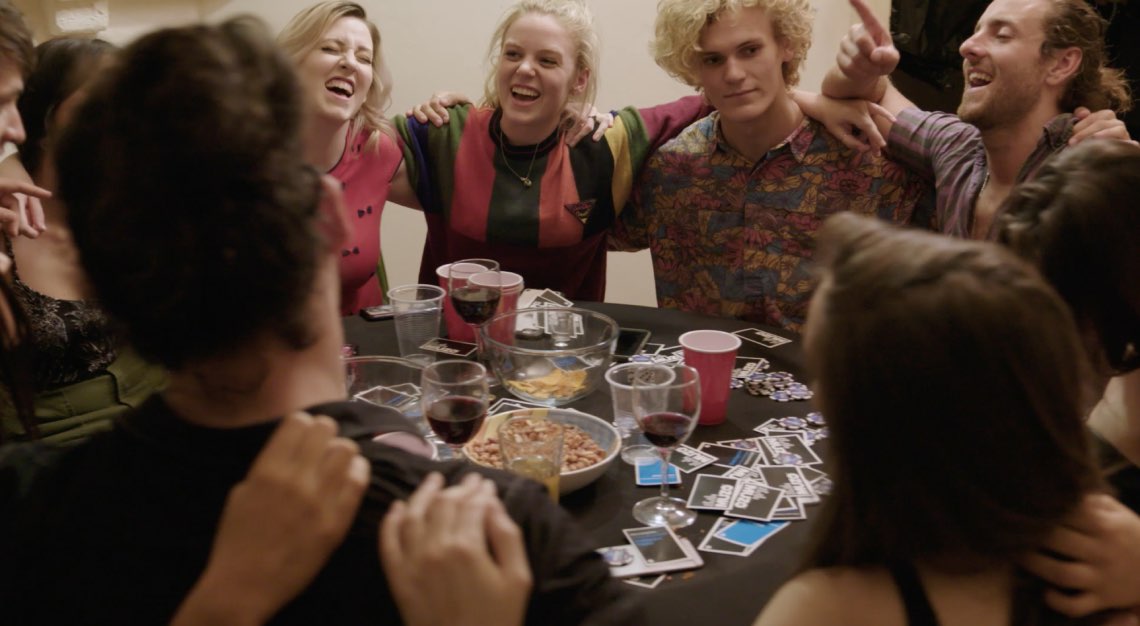
It’s that kind of game. A human experience where interaction is key, and strategy can be useful, but in which technology plays a major part. Even a game that relies so heavily on the devices in our pockets is, at its core, driven by the same imperative that saw Sumerian kings and Mesopotamian rulers huddle over boards in the fading candlelight 4,000 years ago. To win, certainly. But also to talk, to laugh, and to be present among others.
Yes, I lost in the first game I played. I think I came in eighth, and there were only six people playing, but guess what? It was fun. And we talked, sharing anecdotes and the stories behind the provenance of some of the song choices, each one becoming more ribald (and detailed) as libations to the god of Muzo increased in flow.
I’m off to play Candy Crush now, on my own, and wait for another invitation to play Muzo… with my friends. I am down one after my one and only game – who doesn’t like Fool’s Garden’s Lemon Tree for heaven’s sake?
Cliff Richard may have been right in thinking that we don’t talk anymore, and Charlie Puth agreed in his 2016 song of the same title – both equally naff songs with little musical merit that could have you thrown off the table in a game of Muzo. But there is still hope for us all.


